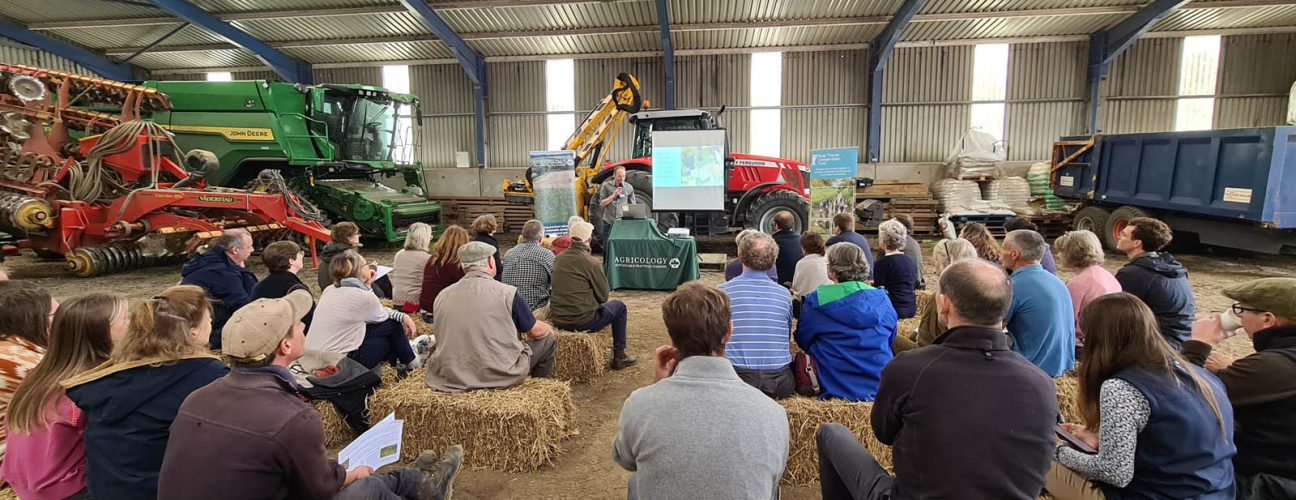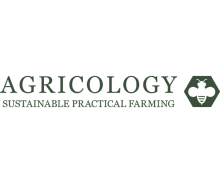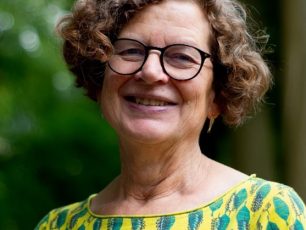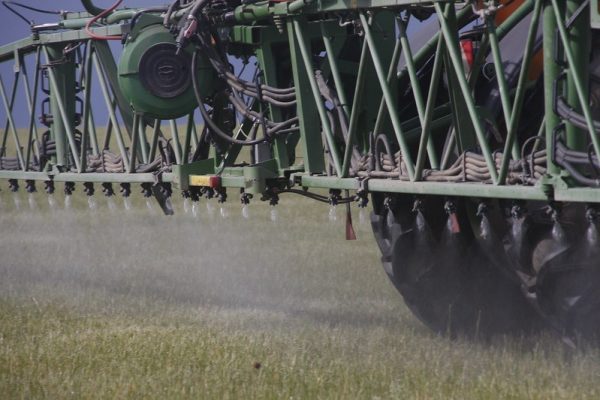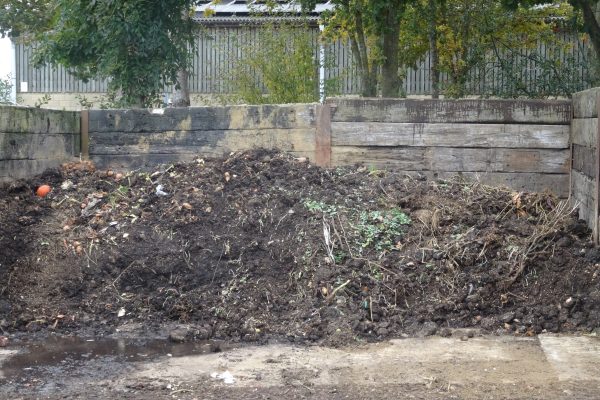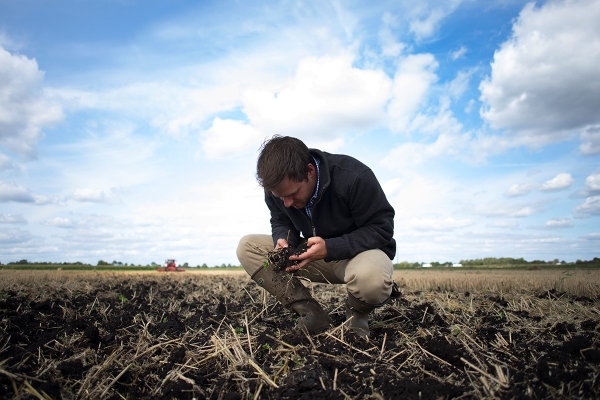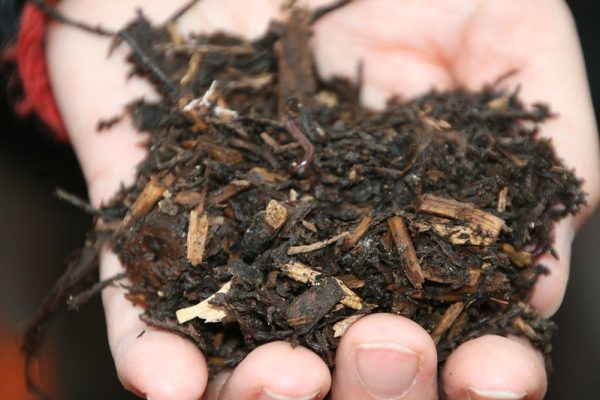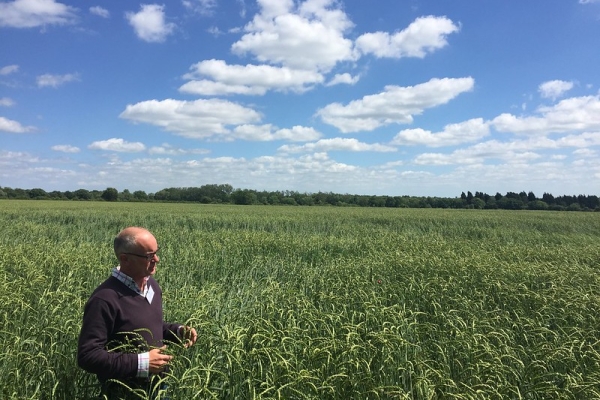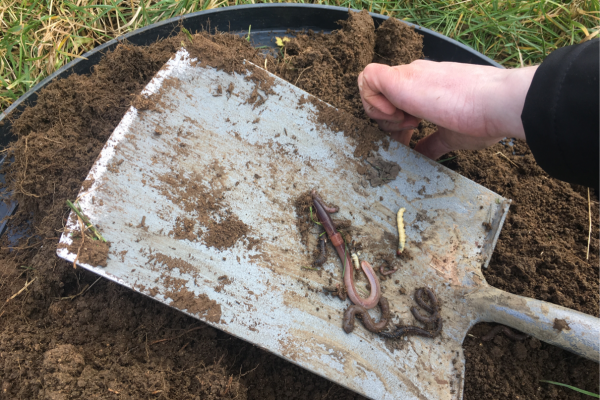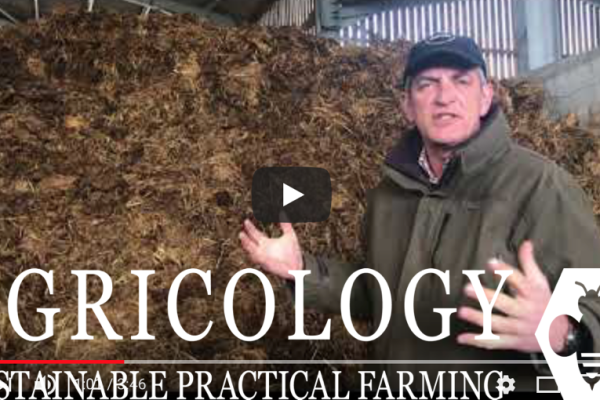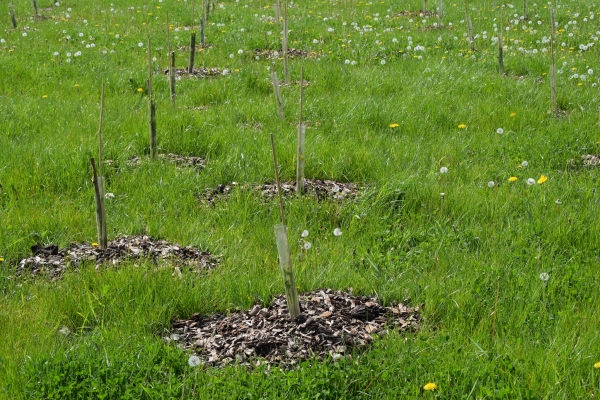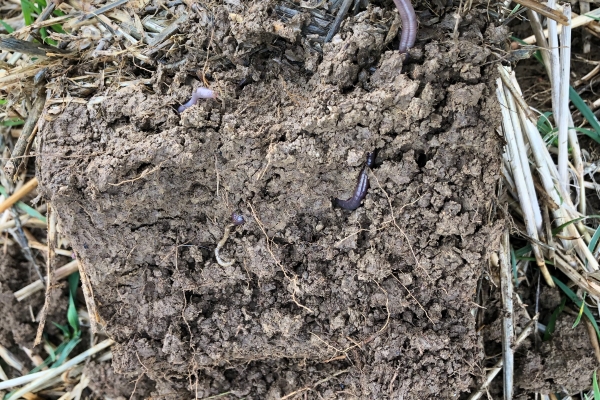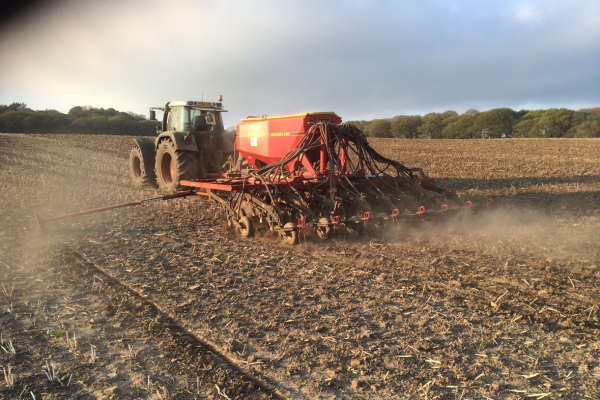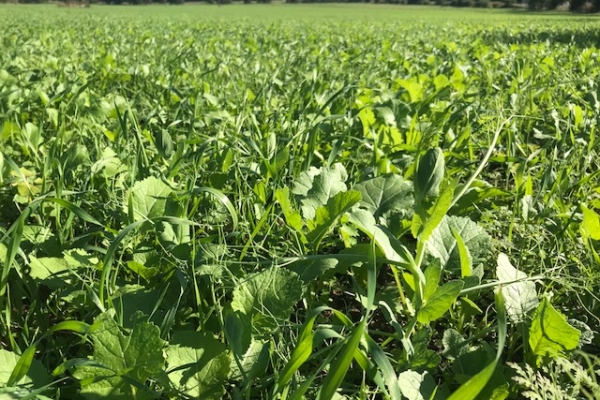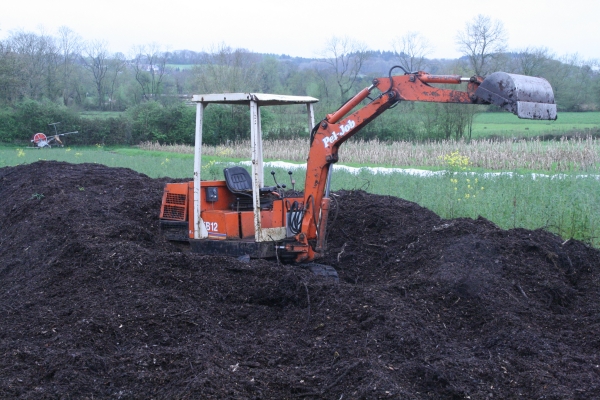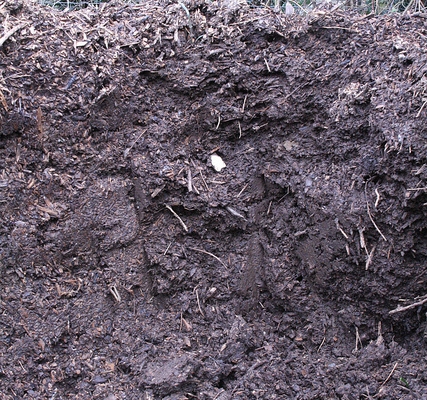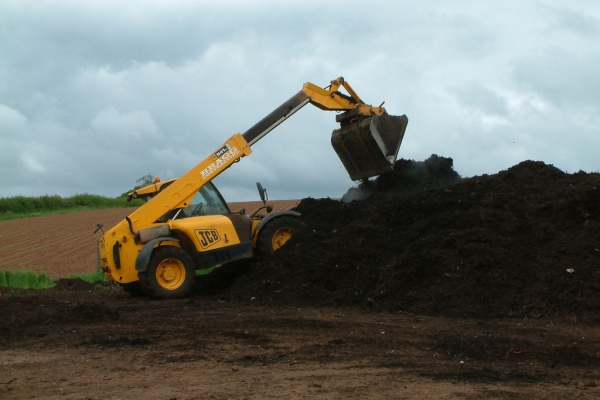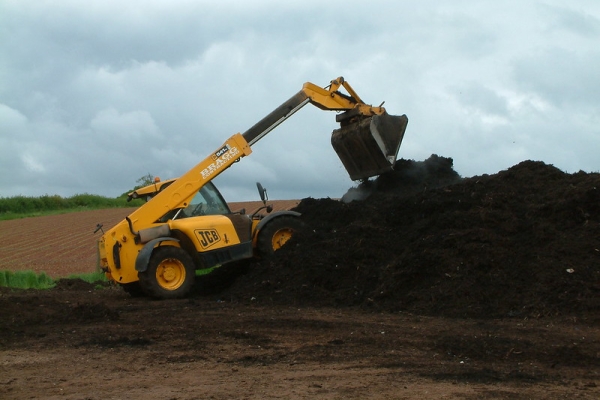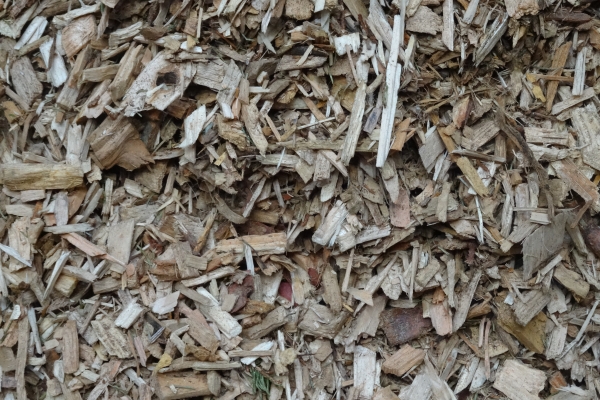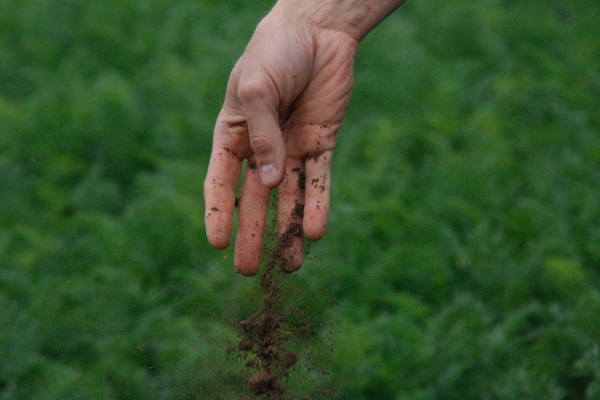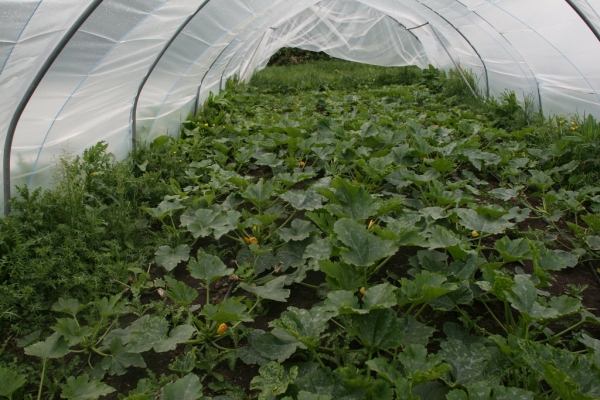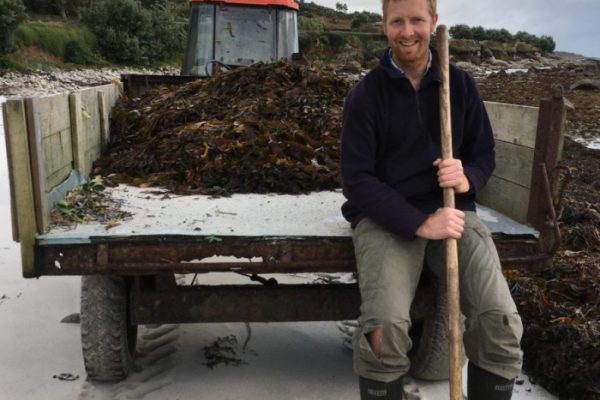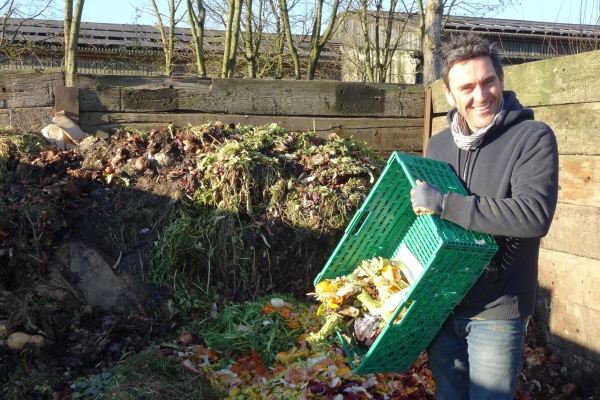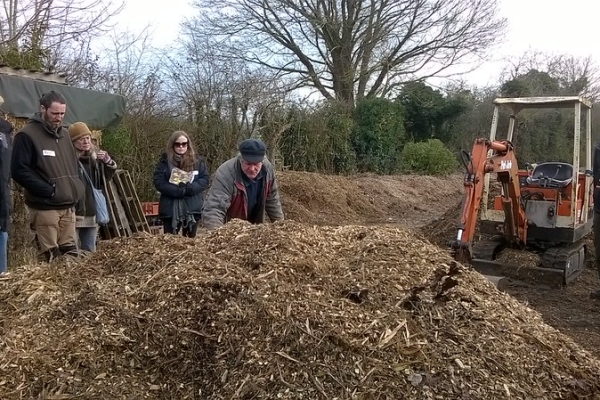A Day at Waddesdon Estate Exploring Healthy Soils and Healthy Ecosystems
Healthy soils are key to healthy ecosystems, supporting biodiversity, holding and filtering rainwater, and maximising farm production. They are also one of the Thame Catchment Farm Cluster’s key priorities. The farm cluster is facilitated by River Thame Conservation Trust (RTCT), so we leapt at the opportunity to partner with Agricology in a Soils Day at Waddesdon Estate on 11th October, an event funded by the Rothschild Foundation.
The aim was to hold a practical event demonstrating techniques to restore soil health and sharing knowledge and experience between local farmers and farm managers working at a range of scales in the catchment. Waddesdon Estates LLP were incredibly generous hosts for the event, welcoming more than 50 farmers, land managers and professionals to their Grain Store buildings, which they let us take over for the day.
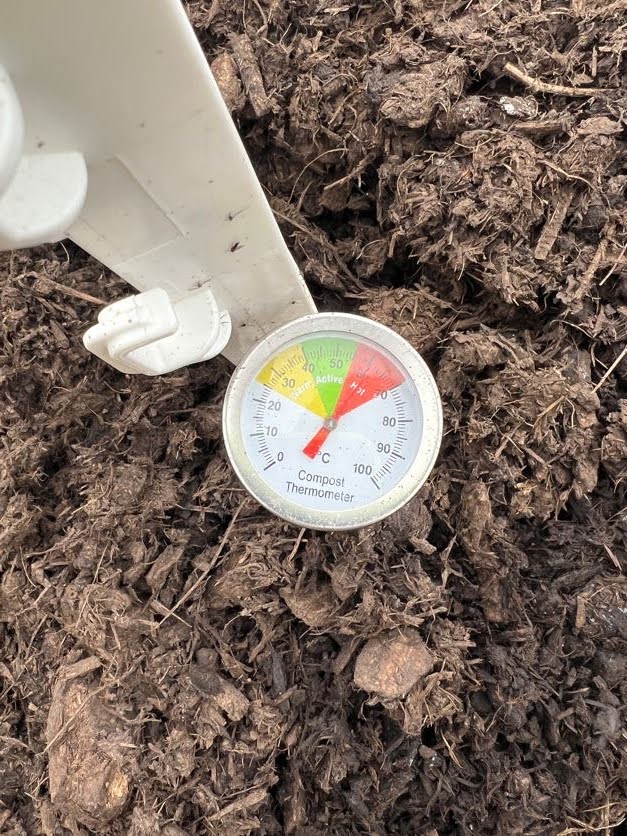
Matt Smee, from Agricology and The Organic Research Centre, did a fantastic job of chairing the sessions, which started out with a double act of Tom (Tom Knowles from Village Farm) and Olly (Olly Pemberton, Farm Manager at Waddesdon Estates LLP) delving into the delights of compost. Tom shared his journey through the “human-scale” composting at the 150 hectare (ha) Village Farm, Emmington, where composting techniques being trialled include hot composting, vermicompost, and experimenting with a variety of Johnson-Su bioreactors to produce a microbial inoculant, or ‘tea’, to increase soil microbial activity. They hand produce approximately 5 tonnes of compost per year, but hope to double this with some use of a tractor this year.
Current compost production levels only allow spreading on about 3 ha of land, so Tom creates a compost extract by ‘brewing’ compost in water (but doesn’t add microbe food). This extract can then be sprayed over a much greater area. Tom’s aim is to create a systems approach to reduce synthetic inputs, using the compost and ‘tea’ alongside techniques such as minimum tillage, margins, bi-cropping and livestock integration. Ultimately this will not only boost the health of his soil but also the financial sustainability of his farm business.
“It is likely that a large proportion of the farming landscape within the area is deficient in the variety of microorganisms required to enable the soil to function properly which is detrimental to nature recovery, the crops grown and the farm businesses.”
As a trained soil scientist, Tom can offer soil microbial lab testing (Soil Food Web analysis) to assess the presence of bacteria, fungi, protozoa, and nematodes. This helps to characterise the current biological state of the soil and provide a way forward to greater soil health and therefore plant growth. Those interested in his services can contact him at TK Soil Services via knowles.tom@gmail.com.
Taking compost to another scale altogether was Olly Pemberton’s demonstration of “Composting at Scale on Waddesdon Estate.”
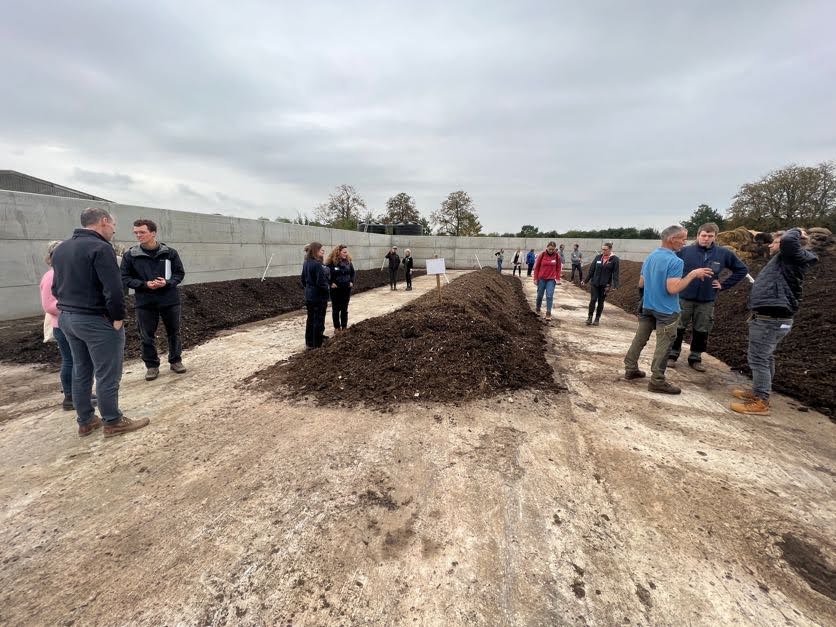
Rows of compost had been laid out on the estate’s composting site behind the Grain Stores, each created using differing proportions of wood chip, ash, and hedgerow clippings, to demonstrate the cooking temperatures and variability of end products. Everyone had the opportunity to plunge their arms into the different windrows to sample the varieties of texture and temperature, while Olly explained the methods used for this much larger scale of production. An eco green shredder is used to grind, mulch and mix material from various parts of the estate, which is then spread in windrows and turned on average once a week using a tractor-drawn compost turner. This produces about 700 tonnes of compost per year by the estate, which is spread over roughly 40 ha per year. No additional material is imported from outside the estate to produce this.
Both these presentations led to many conversations about how scalable both approaches were, how to adapt the recipe to different materials available on farm, the potential of a neighbour materials swap, whether the cluster could benefit from any equipment sharing scheme etc. Many of these conversations have continued well after the event, and the Thame Catchment Farm Cluster steering group will be exploring how to maximise learning from the day and support the implementation of more healthy soils initiatives across the catchment.
The day’s keynote speaker was Niels Corfield, who followed the composting sessions with an inspiring talk on ‘The Weatherproof Farm’ – a farm where healthy soils build organic matter and thereby enhance water retention, enabling farmers to maximise production from the free resources of rainwater and sunshine.

Niels shared valuable insights and practical tips on how to assess and better understand soil health across a farm, which include a practical demonstration of what can be learnt by careful examination of a spade of soil. The importance of building aggregate structure to maximise root growth alongside water infiltration and water retention was looked at in the context of:
- Stock management (frequent moves and long rests which could lead to improved infiltration rates and sward growth and therefore facilitate higher stocking densities and utilisation rates)
- Mechanical intervention (fracturing bulk soil using techniques including Aerworx roller slitter, grass subsoiler, full cultivation and subsoil)
- Mineral management (gypsum to aid flocculation – what a great word!)
- Biological enhancement (such as herbal leys incorporating deep rooted species, and root booster materials such as PGPBs – plant growth-promoting bacteria)
The resulting healthy soils will help increase the resilience to climate events while simultaneously improving profitability and crop yields. It was altogether a thoroughly engaging and entertaining session which captured the audience and prompted some great discussions. More information can be found on Niels website.
The final session of the day was from the Pilio Group team, headed up by Catherine Bottrill setting out insights on ecological baselines and net-zero goals, gained during the group’s collaboration with Waddesdon Estate. This presentation also highlighted the work that Pilio Group has been carrying out in Buckinghamshire, showcasing opportunities for farmer participation in their current Defra Test & Trial project exploring sustainable land management strategies and incentives to engage and deliver against them.
A magnificent end to this afternoon of soil was delivered in the form of wagyu beef burgers cooked on site by the team of Ed and Libby Clark of Decoy Farm, who manage the Waddesdon Wagyu herd.
Our thanks go to the Waddesdon Estates LLP, The Organic Research Centre, Agricology, Niels Corfield, Tom Knowles and all the other fantastic speakers who made this event so enjoyable and informative. Special thanks go to the Rothschild Foundation who funded the event – their dedication to promoting sustainable farming practices is truly commendable.
